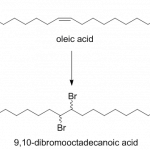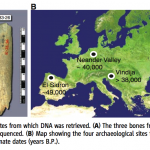Uncategorized
Image: wemidji (Jacques Marcoux).
Nam et ipsa scientia potestas est (And thus knowledge itself is power)
-- Sir Francis Bacon.
This week's edition of Scientia Pro Publica (Science for the People); "Scientia Pro Publica 28" was published this past Monday by Kelsey at her blog, Mauka to Makai. This nicely-done issue of Scientia filled with well-written and thought-provoking essays about a variety of topics.
After you've read this carnival, I hope you will submit your blog essays to the next issue of Scientia. We are trying an experiment right now: we are trying to publish this blog…
... in Edina.
Science vs. Religion: How Faith Makes Us Wrong
On Sunday, May 16th, Minnesota Atheists will host a presentation by Dr. P.Z. Myers. Myers is a biologist, associate professor at U of M Morris and webmaster of the popular site Pharyngula. His discussion will feature three examples - from physics, developmental biology, and neuro-science - where religion has clearly led people down the wrong path to incorrect answers, and where even now believers oppose many of the fact-based conclusions of science. He will be arguing that, if you try to argue that both science and religion are…
Image: wemidji (Jacques Marcoux).
Nam et ipsa scientia potestas est (And thus knowledge itself is power)
-- Sir Francis Bacon.
This week's edition of Scientia Pro Publica (Science for the People); "Scientia Pro Publica 28" was published this past Monday by Kelsey at her blog, Mauka to Makai. This nicely-done issue of Scientia filled with well-written and thought-provoking essays about a variety of topics.
After you've read this carnival, I hope you will submit your blog essays to the next issue of Scientia. We are trying an experiment right now: we are trying to publish this blog…
I recently learned about a great blog by S.C. Kavassalis of the University of Toronto called The Language of Bad Physics. She discusses, among other things, the way language is used in physics. She's got an interesting piece on the use of the word "theory". This is always a hot area of discussion, but in physics it has particular resonance because so many non-physicists like to come up with their own "theories" about how nature might work.
I put "theory" in scare quotes not because amateurs can't make contributions to physics - they can and do - but because there's a heck of a lot of cranks…
When you mix bromine with another molecule that has a carbon-carbon double bond, the bromine can add across the double bond.
The bromine atoms are very heavy - about 80 times as heavy as a hydrogen atom, or 7 times as heavy as a carbon atom. Bromination usually gives you a molecule that has higher density than the parent molecule.
Vegetable oil - which has a density of about 0.9 grams per milliliter - can be made as dense as water (i.e., 1 gram per milliliter) by adding the right amount of bromine.
Brominated vegetable oil can give an emulsion in water that is opaque and visually pleasing…
Image: wemidji (Jacques Marcoux).
Nam et ipsa scientia potestas est (And thus knowledge itself is power)
-- Sir Francis Bacon.
This week's edition of Scientia Pro Publica (Science for the People); "Scientia Pro Publica 28" was published this past Monday by Kelsey at her blog, Mauka to Makai. This nicely-done issue of Scientia filled with well-written and thought-provoking essays about a variety of topics.
After you've read this carnival, I hope you will submit your blog essays to the next issue of Scientia. We are trying an experiment right now: we are trying to publish this blog…
This week, Science published two papers about the genetics of Neandertals from a team of scientists based at the Max Planck Institute of Evolutionary Anthropology. The first (which is the only one anyone seems to really care about) gives a draft version of the entire Neandertal genome - a whopping 4 billion base pairs of DNA. They use this information to look for genomic regions that may have been affected by positive selection in ancestral modern humans that led to their separation from Neandertals, and found some very interesting ones that include genes involved in metabolism and in…
There is good reason that many of us would like to see religion gone, and it is religion itself, not the people who are religious, that we want to see wither and die.
Read more
I'm always fascinated by the ways in which societal issues impact the research program of modern neuroscience. (After all, the virtue of studying the brain is that it can be made relevant to just about anything, from the formation of financial bubbles to internet searches.) We're still living through the aftermath of the Great Recession, which was obviously caused by a number of factors. But one clear cause was the astonishing number of bad mortgages, many of which were in the subprime category. These mortgages were made possible by irresponsible speculation on Wall Street, but they also…
I've got a class and Eric's got a final today, plus kid stuff, so I won't have time to read through the President's Cancer Panel Report today, but I do think it is worth noting that the recommendation that we start thinking more seriously about environmental factors and the health consequences they have has reached the mainstream. We know appallingly little about the chemical experiments we are enacting upon ourselves - we know very little, for example, about how they affect develping fetuses, despite the heavy prenatal exposure all our kids get. We know very little about the aggregate…
Yeah, I know, a clouded leopard cub has graced the weekly cute once before. But OMGZ how could I not post this picture?
From the National Zoo a la ZoobornsClouded leopards (Neofelis nebulosa), by the way, are a vulnerable species of cat found in Southeast Asia. They're fairly small, growing only to around 50lbs - smaller than your average Labrador Retriever. It's a very difficult cat to find in the wild, so little is known about its behavior outsize zoos, and population estimates are rough at best. The World Conservation Union estimates fewer than 10,000 leopards exist, and believe the…
Lately, my lovely nerdy scibling Christie has been collecting examples of genius and almost-genius inventions, contraptions, and ideas.
I humbly offer the following, to be included under "absolutely freaking genius".
It's been a while since I've posted, because I've been busy goofing off and having fun - I took a long European vacation (pictures and posts to follow). I'm back, mostly recovered, and almost back to my normal routine.
I just read this article from the LA Times. Emphasis added:
For months, the rafts that ferry Disneyland guests across the waterway to Tom Sawyer Island have been idle. No children have explored the island's caves, scaled its climbing rocks or run across its bridges.
But the island won't be lonely much longer. Park employees will refill the Rivers of America, drained in January for maintenance, this week. The draining took almost a week, at the end of which this question was answered: What do you find at the bottom of an amusement park basin after seven years?
The answer: a computer tower,…
George Alan Rekers, the anti-gay gay minister, has actually come out and admitted what he and his lovely rent-boy were doing on tour.
If you talk with my travel assistant that the story called "Lucien," you will find I spent a great deal of time sharing scientific information on the desirability of abandoning homosexual intercourse, and I shared the Gospel of Jesus Christ with him in great detail.
Now I'm worried. I just know I'm going to go into class to "share scientific information", and all the knowing gays will be giggling and laughing and saying, "oh, he went there," and I'll be…
The police officers are pleased and amused by the situation, which gives the young viewers an indication of what it looks like when all is well that ends well.
Another in the "How we got this way" series.
Image: wemidji (Jacques Marcoux).
Nam et ipsa scientia potestas est (And thus knowledge itself is power)
-- Sir Francis Bacon.
This week's edition of Scientia Pro Publica (Science for the People); "Scientia Pro Publica 28" was published this past Monday by Kelsey at her blog, Mauka to Makai. This nicely-done issue of Scientia filled with well-written and thought-provoking essays about a variety of topics.
After you've read this carnival, I hope you will submit your blog essays to the next issue of Scientia. We are trying an experiment right now: we are trying to publish this blog…




